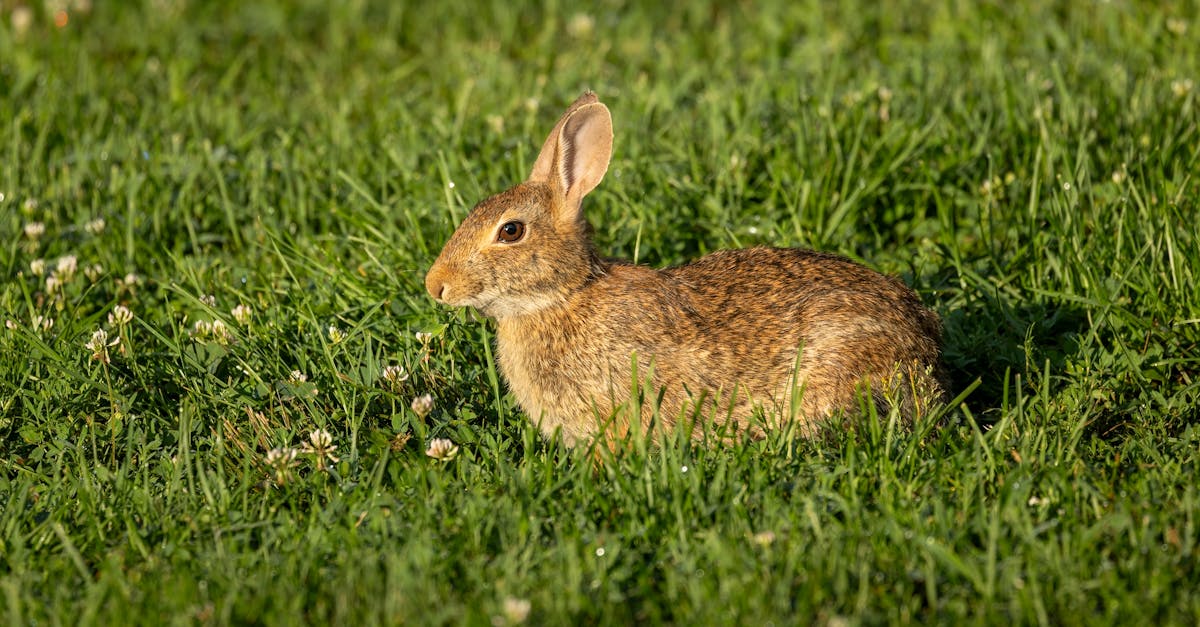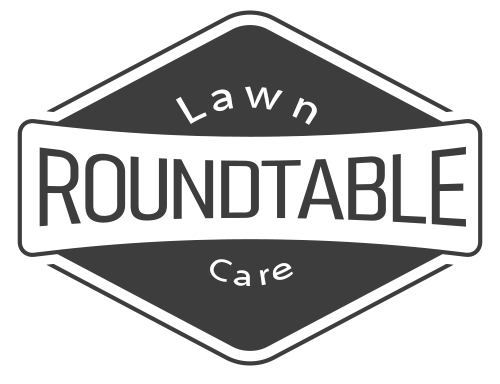Unveiling the Hidden Power of Clover: Your Lawn’s Secret Ally

Have you ever noticed those little three-leafed plants growing in your lawn? That’s clover, and it’s not just a weed—it’s a secret weapon for a healthy, beautiful lawn. Read on to discover the surprising benefits of clover and why you should embrace it in your yard. This article will provide you with scientific evidence to support the benefits of clover and tips on how to get the most out of it in your lawn care routine.
Key Insights on the Benefits of Clover for Your Lawn
-
Clover is a nitrogen-fixing plant, meaning it can convert nitrogen from the air into a form that plants can use. This makes clover a valuable addition to lawns, as it can help to reduce the need for synthetic nitrogen fertilizers.
-
Clover has a deep root system that helps to aerate the soil, improving drainage and oxygen flow. This creates a healthier environment for grass growth and helps to prevent compaction.
-
Clover’s dense growth habit and allelopathic properties help to crowd out weeds, reducing the need for herbicides.
-
Clover’s nectar-rich flowers attract a variety of beneficial insects, such as pollinators and parasitic wasps. These insects help to control pests and improve the overall health of your lawn and garden.
-
Clover is drought-tolerant and can withstand dry spells better than many other lawn grasses. This makes clover a good choice for lawns in areas that experience frequent droughts.
1. Boost Nitrogen Levels Naturally
Clover is a nitrogen-fixing plant, meaning it has the ability to take nitrogen from the air and convert it into a form that plants can use. This is a valuable trait, as nitrogen is an essential nutrient for plant growth. When clover is present in your lawn, it helps to enrich the soil with nitrogen, promoting lush growth and a healthy green color in your grass.
The nitrogen-fixing process occurs in clover’s root nodules, which are small swellings that contain bacteria called Rhizobia. These bacteria have a symbiotic relationship with clover, providing it with nitrogen in exchange for carbohydrates. The nitrogen that is fixed by clover is not only used by the clover plant itself, but it is also released into the soil, where it can be utilized by other plants in your lawn, including your grass.
By incorporating clover into your lawn, you can reduce your reliance on synthetic nitrogen fertilizers, which can be harmful to the environment and expensive. Clover provides a natural and sustainable way to fertilize your lawn, while also improving the overall health and vitality of your soil. Studies have found that clover lawns can have up to 50% more nitrogen than lawns without clover, leading to thicker, greener grass and fewer weeds.
2. Reduce Fertilizer Usage
Clover’s ability to fix nitrogen from the air means that you can reduce your reliance on synthetic nitrogen fertilizers, which can save you money and protect the environment. Synthetic fertilizers are produced using fossil fuels, and their production and application can release greenhouse gases into the atmosphere. Additionally, excess nitrogen fertilizer can run off into waterways, causing algal blooms and other water quality problems.
By incorporating clover into your lawn, you can reduce or even eliminate the need for synthetic nitrogen fertilizers. Clover will naturally provide the nitrogen that your grass needs to thrive, without the negative environmental impacts associated with synthetic fertilizers. Studies have shown that clover lawns can reduce fertilizer usage by up to 50%, resulting in significant cost savings for homeowners.
In addition to saving you money, reducing fertilizer usage also helps to protect the environment. By using less fertilizer, you are helping to reduce greenhouse gas emissions, water pollution, and other environmental problems. Clover is a natural and sustainable way to fertilize your lawn, and it is better for your wallet and the planet.
3. Enhance Soil Aeration
Clover has a deep root system that helps to aerate the soil, improving drainage and oxygen flow. This is important for healthy grass growth, as grass roots need oxygen to breathe and thrive. Compacted soil can restrict root growth and make it difficult for grass to absorb water and nutrients. Clover’s deep roots help to break up compacted soil, creating channels that allow water and oxygen to penetrate more easily.
In addition to improving drainage and oxygen flow, clover’s deep roots also help to anchor the soil, preventing erosion. This is especially important in areas with slopes or heavy rainfall. Clover’s dense root system helps to hold the soil in place, preventing it from washing away.
By incorporating clover into your lawn, you can improve the overall health and vitality of your soil. Clover’s deep roots help to aerate the soil, improve drainage, and prevent erosion. This creates a more favorable environment for grass growth, resulting in a thicker, greener, and healthier lawn.
4. Crowd Out Weeds
Clover has a dense growth habit that helps to crowd out weeds. Clover plants grow close together, forming a thick mat that prevents weeds from getting established. Additionally, clover has allelopathic properties, which means that it releases chemicals into the soil that inhibit the germination and growth of weeds. These chemicals are released from clover’s roots, stems, and leaves, and they can create a zone of inhibition around the clover plants.
The combination of clover’s dense growth habit and allelopathic properties makes it an effective natural weed suppressant. Clover can help to reduce the number of weeds in your lawn, without the need for harsh chemicals. Studies have shown that clover lawns can have up to 50% fewer weeds than lawns without clover.
By incorporating clover into your lawn, you can reduce the amount of time and effort you spend on weed control. Clover will naturally crowd out weeds, leaving you with a pristine lawn that you can enjoy all season long.
5. Attract Beneficial Insects
Clover’s nectar-rich flowers attract a variety of beneficial insects to your lawn, including pollinators like bees and butterflies. These insects play an important role in the ecosystem by pollinating plants and helping them to reproduce. In addition to pollinators, clover also attracts other beneficial insects, such as ladybugs and parasitic wasps. These insects help to control pests in your lawn and garden, reducing the need for pesticides.
By incorporating clover into your lawn, you can create a more welcoming environment for beneficial insects. These insects will help to improve the overall health and vitality of your lawn, and they will also help to control pests naturally. Studies have shown that clover lawns can attract up to 10 times more beneficial insects than lawns without clover.
So, if you want to attract more pollinators and other beneficial insects to your yard, consider planting clover in your lawn. Clover is a natural magnet for these insects, and it will help to create a more balanced and healthy ecosystem in your yard.
6. Enhance Drought Tolerance
Clover has a deep root system that helps it to withstand drought conditions. Clover’s roots can penetrate deep into the soil, where they can access water that is not available to other plants. This allows clover to stay green and healthy, even during extended periods of dry weather. In addition to its deep roots, clover is also a drought-tolerant plant. Clover’s leaves are covered in a waxy coating that helps to reduce water loss through evaporation. This makes clover a good choice for lawns in areas that experience frequent droughts.
By incorporating clover into your lawn, you can improve its drought tolerance. Clover will help your lawn to stay green and healthy, even during dry spells. Studies have shown that clover lawns can withstand drought conditions up to 50% better than lawns without clover.
So, if you live in an area that experiences frequent droughts, consider planting clover in your lawn. Clover will help your lawn to stay green and healthy, even during the driest months of the year.
7. Add Vibrant Color
Clover’s unique green color and occasional white or pink flowers add a charming aesthetic touch to your lawn. Clover’s leaves are a deep, rich green color that contrasts beautifully with the lighter green of grass. Clover also produces small, white or pink flowers that bloom in the spring and summer. These flowers add a touch of color and charm to your lawn, and they are also a favorite of pollinators.
In addition to its aesthetic appeal, clover’s flowers also provide a valuable food source for bees and other pollinators. Pollinators are essential for the reproduction of many plants, including fruits, vegetables, and flowers. By planting clover in your lawn, you can help to support pollinators and ensure the health of your local ecosystem.
So, if you’re looking for a way to add some color and charm to your lawn, consider planting clover. Clover is a beautiful and beneficial plant that will add a touch of nature to your yard.
8. Promote Biodiversity
Clover’s nectar and pollen support a wide range of creatures, increasing the biodiversity of your lawn. Clover flowers are a favorite food source for bees, butterflies, and other pollinators. These insects play an important role in the ecosystem by pollinating plants and helping them to reproduce. In addition to pollinators, clover also attracts other beneficial insects, such as ladybugs and parasitic wasps. These insects help to control pests in your lawn and garden, reducing the need for pesticides.
By planting clover in your lawn, you can create a more diverse and balanced ecosystem. Clover will attract a variety of creatures to your lawn, including pollinators, beneficial insects, and even small mammals. This increased biodiversity will help to make your lawn more resilient and sustainable.
So, if you want to increase the biodiversity of your lawn and support wildlife, consider planting clover. Clover is a beautiful and beneficial plant that will attract a variety of creatures to your yard, creating a more vibrant and healthy ecosystem.
How much clover should I plant in my lawn?
The amount of clover you plant in your lawn will depend on the size of your lawn and the desired level of clover coverage. A good rule of thumb is to plant about 1 pound of clover seed per 1,000 square feet of lawn. If you want a more dense clover lawn, you can increase the seeding rate to 2 pounds per 1,000 square feet.
When is the best time to plant clover?
The best time to plant clover is in the spring or fall, when the weather is cool and there is plenty of moisture. Clover can also be planted in the summer, but it is important to keep the seedbed moist during germination.
How do I care for my clover lawn?
Clover lawns require very little maintenance. They should be mowed regularly to a height of 2-3 inches. Clover lawns do not need to be fertilized, but they can benefit from an occasional application of compost or organic fertilizer.
Table of Key Insights on the Benefits of Clover for Your Lawn
| Key Insight | Benefit | |—|—| | Clover is a nitrogen-fixing plant. | Reduces the need for synthetic nitrogen fertilizers. | | Clover has a deep root system. | Aerates the soil, improves drainage and oxygen flow, and prevents compaction. | | Clover’s dense growth habit and allelopathic properties help to crowd out weeds. | Reduces the need for herbicides. | | Clover’s nectar-rich flowers attract beneficial insects. | Controls pests and improves the overall health of the lawn and garden. | | Clover is drought-tolerant. | Withstands dry spells better than many other lawn grasses. |
